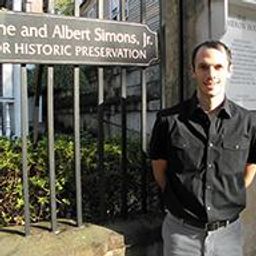Explorations in the Preservation of Coal Mining Heritage Areas III
My Session Status
During the Industrial Revolution coal was the most important energy source for both homes and industries. At the time, coal mining created strong regional industrial identities and mentalities, as well as industrial images and imaginaries in the eyes and minds of external observers. Such identities and ideas of coal would go on to shape industrial landscapes and communities.
The papers presented in this session investigate the social and economic changes that were triggered by transformations within the energy market and de-industrialization processes from international and comparative perspectives. Against this background the session will discuss strategies and concepts of (re)-valuation in former mining areas. The industrial heritage will be reconsidered in a broader sense, i.e. in the context of the specific post-industrial landscape and new cultural tourism.
Sub Sessions
Le Bassin Minier français du Nord et du Pas-de-Calais se caractérise par un paysage, un urbanisme et une architecture résultants de deux siècles d’exploitation industrielle du charbon, en transition brutale suite à la fermeture des mines. Depuis son inscription par l'UNESCO en 2012 sur la liste du patrimoine mondial au titre de «paysage culturel évolutif et vivant», la reconnaissance de ce territoire, pensée comme une force de résilience pour une transition ambitieuse, a porté la question pat...
Since the 19th century, the industrial technology had spread from Europeans throughout the world, to prompt the rapid development of global industrial revolutions. Industrial heritage can explain regional culture and industrial history, and industrial memory has the core value that records the development of the industry, so industrial memory has archived files of regional, national and international importance. Industrial cultural heritage preservation organizations always promote Industrial...
This paper explores the scope of the main heritage conservation initiatives undertaken in Spain's coalfields. It studies the role of policies to enhance mining heritage and the interest in industrial tourism as an alternative within the framework of the government's Fair Transition Strategy. The analysis focuses on the cultural initiatives proposed in the coalfields of Bierzo and Laciana regions located in the west of León. The decarbonization program promoted by the Paris Agreements and th...







Discussion